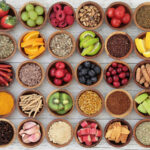Fighting climate change and its impacts is one of the most important challenge of our historical period and represents a key factor for the sustainable development. The process of ecological transition is unavoidable and requires a deep transformation of the productive system towards a sustainable model that involves industry, governance, economy, science, and society. All the stakeholders should work together to find effective and durable solutions and reverse the harmful processes of deterioration triggered up to now on the environment around us.
The global and European strategies, SDG’s, the Paris Agreement, the European Green Deal, march with great ambition in the same direction: a progressive and complete decarbonization of the system (‘Net-Zero’) and the development of new solutions and new technologies of circular economy, to protect the environment, biodiversity and to guarantee an equal, healthy and sustainable system.
Italy, with the Piano Nazionale di Ripresa e Resilienza, commits to this challenge, since the critical position of our country towards climatic changes, the need to protect our environmental heritage, and its impact on economic, social, and cultural system, and the opportunity to exploit the renewable resources on our territory.
In this context research and innovation are a key tool for the economic and social development of our country.
Le attività di ricerca degli istituti afferenti al DiSBA sono focalizzate da sempre nella conservazione dell?agro-biodiversità, della valorizzazione del germoplasma utile in situazioni di emergenze alimentari o di crisi climatiche ed ambientali. Molte delle loro ricerche sono già orientate ad aumentare la durabilità dei prodotti alimentari e allo sviluppo di nuove tecnologie che mitigano o evitano l?imballaggio (zero packaging) attraverso, l?applicazione di packaging innovativi e sostenibili per prodotti agroalimentari freschi e trasformati.
CNR Activities focus on: Conservation of agrobiodiversity and valorisation of germplasms in food emergency or climatic and environmental crisis; post-harvest conservation; the increase in the durability of food products and the development of technologies that reduce or avoid packaging (towards zero packaging) or, where necessary, the application of innovative and sustainable packaging for fresh and processed food products; agriculture 4.0, through the development of innovative technologies and methodologies for crop and risk management; valorisation and protection of “made in Italy” products through new solutions for the environmental sustainability; strategies of risk mitigation and studies on sustainable management of water resources in agrifood; novel food and alternative proteins towards healthy and sustainable diets; circular economy and exploitation of food waste from the industrial chain.
.




